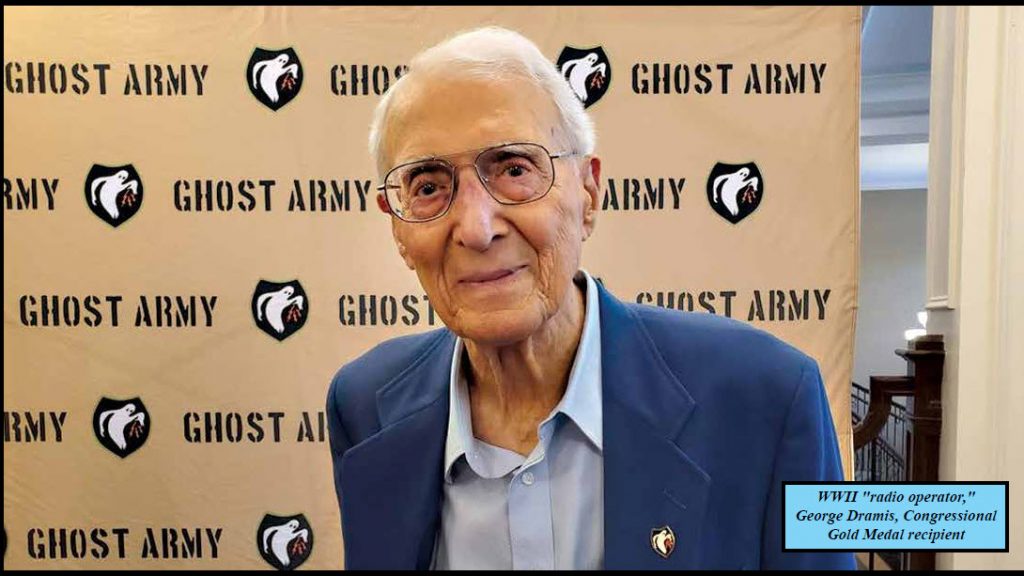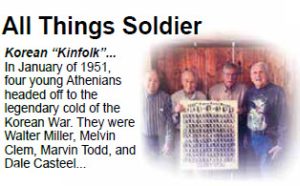 By: Ali Elizabeth Turner
By: Ali Elizabeth Turner
George Dramis was born in 1925, and like so many of the Greatest Generation, when he came home from the European campaign after WWII ended, he couldn’t say much about what he did because it was classified. It stayed classified until 1996, and technically George was telling the truth when he said that he had been “a radio operator.” That, however, was a bare wisp of the total picture.
After D-Day, two units that became known as the Ghost Army began one of the most epic Psychological Operations (PSYOP) strategies in the history of the US Army. When I read of the things about which George now can freely discuss, I am reminded of Gideon’s army in the Bible that deceived the enemy into thinking that they had been surrounded by thousands when in fact it was only 300. George’s unit effectively did the same thing, but the technology was a bit more sophisticated.
The Germans never recovered from the defeat at Normandy, but the war was far from over. What the Ghost Army accomplished was military sleight-of-hand (and sound) by playing the sounds of war on speakers that weighed 500 pounds and could be heard for 15 miles. These were actual recordings that played conversations, the sounds of tanks as well as other forms of weaponry, and knocked the Germans for a loop. In addition, they had inflatables that looked like heavy equipment, and the soldiers wore fake patches of other units. The Ghost Army always “struck” at night, and they made 1,100 soldiers sound and seem like there were 15,000 “Joes” just around the corner ready to unleash all manner of mayhem.
The two units were technically known as the US Army’s 23rd Headquarters Special Troops, and they became the foundation upon which modern Ranger, Delta, SEALS, Marine Raider, Green Beret, Air Force Special Warfare, and the Coast Guard’s Maritime Security Response Teams (MSRT) train and operate.
Recently George was honored for his role in freeing Europe, and with the characteristic humility of soldiers of that era, he has a hard time being referred to as a hero. All these years later, whenever he talks about what it cost to liberate a continent, he needs to slow down and take a breath in order to retain his composure. Here’s what he said after the ceremony:
“They keep talking about this hero part all the time. Well, I’m not so sure about that hero stuff,” Dramis said to those gathered at the assisted-living facility at which he lives in Raleigh, North Carolina.
“The 18-, 19-year-old, 20-year-old guys that maybe lasted one minute or two minutes or three minutes, and they never made it. They never got to grow up and have a life … those guys are the heroes.”
There are only nine people left of the original 1100 Ghost Army troops, and they are soon going to be the recipients of the Congressional Gold Medal. George’s son Jim worked tirelessly with the Ghost Army Legacy Project to push through the bill that made it possible for them to receive the honor they so rightly deserve. Clearly George and his family have much to celebrate, as do we all, and we say, “Deepest thanks” to Mr. Dramis for participating in a deception that delivered democracy.
By: Ali Elizabeth Turner









 June 20, 2025
June 20, 2025



